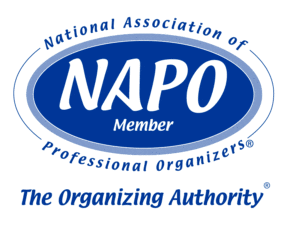Most of us do it every day. Procrastinate. We tell ourselves “I’ll get to that later” and most of the time we do. But what happens if we don’t? What if we procrastinate too long? What are the costs? We try to convince ourselves that there’s little-to-no cost of procrastination, but there are many costs, some very tangible, others more subtle.
Here’s the first 5 of my top 10 list of areas we shouldn’t procrastinate on and the cost if we do. Look for installment #2 next week.
Relationship support: How many times have we heard (in real life and movies) people bemoaning the fact that they didn’t tell their loved ones how much they meant to them and now it’s too late. Certainly, this is the worst-case scenario of procrastination. But what about the every day costs to our relationships that procrastinating causes: the partner that agreed to pick up the dry cleaning on the way home and procrastinates until the cleaner is closed; the parent who agreed to bake for the school event and procrastinates until it’s too late and disappoints their child by providing store-bought treats instead of the home-made they’d promised their classmates; the friend that promises to make a dinner reservation for a special event and procrastinates until the restaurant can’t accommodate the request. Yes, these are all small things, but significant in relationship-building. Cost of procrastination: Trust
Health: As a breast cancer survivor, I am keenly aware of the cost of putting off health-related appointments. I’m lucky I didn’t procrastinate too long, but without repeated, significant nagging from my doctor, I very well could have. Regular health screenings and preventative maintenance like flu and pneumonia shots are critical to our well-being so they shouldn’t be put off until we think there will be a more convenient time. I’ve heard that some people attempt to schedule all their medical check-ups on their birthday. What better gift could we give ourselves than the gift of good health? Cost of procrastination: Poor health.
Household Chores: I don’t know anyone that likes to clean the gutters. Cleaning gutters involves a ladder, dragging it around the house, possibly getting on the roof (I recommend hiring an expert if your gutters need to be cleaned from the roof), and smelly, wet leaves. And, as gutter-cleaning procrastinators, we generally end up doing it in the dark and in the rain because that’s when we notice that the rainwater is overflowing the drain pipes. Wouldn’t it have been much easier to have cleaned the gutters on a nice, sunny Saturday before the rain starts? From personal experience, I can tell you it is. It’s not just gutters we need to worry about. Not cleaning furnace filters will result in reduced productivity and higher energy bills. Not cleaning the dryer vents may results in a lint fire. Not checking the water softener will results in spotty glasses. The list goes on and on. Cost of procrastination: Stress, money and safety
Home/Car Repairs: Things break. It’s a fact of life. Whether it’s the toaster, the sink, or the car, stuff just happens and we have to deal with it. The cost of not fixing or replacing a faulty toaster could be everything from just not having toast in the morning to getting shocked while trying to retrieve the toast with a kitchen fork (strongly NOT recommended!). The costs of not fixing a leaky sink could be just a minor annoyance to extensive damage caused by the leak damaging cabinetry or walls. The cost of not repairing squeaky brakes could be devastating to the health and safety of ourselves and our loved ones should the brakes fail. Cost of procrastination: Money, major home/car repairs, and safety.
Organization (my personal favorite): According to a study conducted by a Boston marketing firm, the average American burns 55 minutes per day – roughly 12 weeks a year – looking for things they know they own but can’t find. (Newsweek, 6/7/04). As a professional organizer, my job is to help people get their home and business lives organized and under control. Disorganization manifests itself in many ways: wasted time because we can’t find things; finance charges because we didn’t pay our bills on time; late fees for not returning a library book or DVD; money wasted replacing things we already own because we couldn’t find them when we needed them; and trust because we didn’t finish a project on time due to dysfunctional time management. Being organized means we can find things when we need them; we can do the things we need to do when they need to be done; and we can get the places we need to get on time. Cost of procrastination: Time, money, and trust
The costs of procrastination can be everything from minor annoyances to the devastating loss of trust. Fortunately, procrastination can be managed. It requires scheduling, initiative, and a drive to do better, but it can be done.
The best way to stop procrastinating? Just get started. Getting started will provide the momentum to finish. Unfinished tasks are uncomfortable for us. Once we get started, we have the drive to finish.
Look for The Real Costs of Procrastination: Installment #2 next week.
Cindy Jobs



